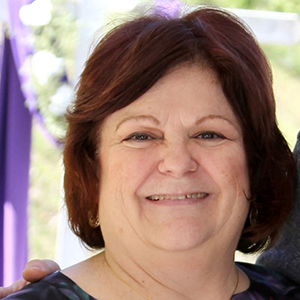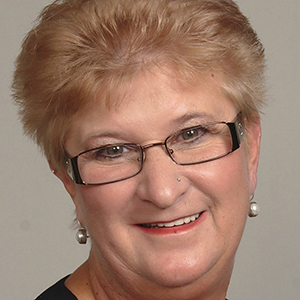In this Article

From hospitals and clinics to nursing homes and midwife centers, medical billers and coders translate doctors’ notes, procedures, and services provided into codes that can be submitted to insurance companies and other payers like Medicare and Medicaid. This process keeps hospitals and other medical settings afloat, as they are directly tied to the organization’s revenue cycle. Without their efforts, care providers wouldn’t get paid for their vital work.
Medical coders translate the care a patient receives into codes, which a medical biller then submits for reimbursement. Both jobs involve checking and re-checking for accuracy, since these steps influence a healthcare organization’s income as well as its compliance with federal regulations.
Compared to other careers in the medical field, billers and coders can move through the required education quickly—in as little as nine months. This is good news for aspiring professionals and the healthcare industry alike. Medical billers and coders are in high demand and job prospects are growing at roughly twice the average rate.
What is Medical Billing and Coding?
Although many people think medical coders and billers are the same, these are actually two separate jobs. Some employers, especially small organizations, hire one person to perform both jobs. It is more common, particularly among large organizations, to employ billers and coders separately.
You can study to become a medical biller, a medical coder, or a biller/coder. You’ll select your educational path depending on your interests, available time for study, and job goals.
Medical billers and coders both fulfill tasks within the revenue cycle of a healthcare organization. This cycle begins after a patient has received care and continues until a provider has received full reimbursement from insurance companies, other payers, and/or patients themselves.
Billing and coding responsibilities require attention to detail, computer skills, and excellent communication. “Accuracy and compliance affect not only reimbursement to doctors,” explains Robyn Korn, MBA, RHIA, CPHQ, an adjunct instructor of medical coding at Purdue University Global. “Coding and billing correctly protects the healthcare organization from fraud investigations.”
What is Medical Coding?
“What makes this field special are the various avenues billers and coders can go into,” says Nancy Szwydek, MPH, RN, RHIA, CRAT, CMAC, who is assistant dean for accreditation at Purdue University Global. “You may work strictly on the billing side of things, or on coding side, or both. Medical coding has subsets, too. As a medical biller and coding, you have diverse opportunities.”
Medical coders update patient files using one or several coding systems. They first decipher the notes of a doctor, nurse, surgeon, technician, or nurse practitioner to determine which procedure and diagnosis codes best reflect the care a patient received.
This sounds straightforward but requires tremendous skill and familiarity with medical terminology, anatomy and physiology, and even pharmacology. If a patient visits a doctor due to difficulty breathing, coding is not as simple as finding the code for “asthma.” In fact, that one condition has 18 potential codes, depending on the type of asthma, its severity, and how it presents.
Medical coders must also keep up with continual changes as coding systems are updated.
What is Medical Billing?
After medical coders have completed their work in patient records, medical billers step in. They take the assigned codes and the patient’s insurance information, then enter these details into the hospital or medical facility’s billing software. The information is submitted to the insurance company or other payer for reimbursement.
Medical billers may communicate with medical coders, insurance companies, and patients. When patients are responsible for a portion of the treatment costs, medical billers create statements for the patient and sometimes work together to create a payment plan.
Medical billers and coders work together to ensure claims are processed accurately and thoroughly. This helps the medical facility or physician get paid in a timely manner.
Steps to Become a Medical Biller and Coder
Find the right program.

You can study to be a medical biller or a medical coder, or you can take a program that encompasses both. In addition, programs teach different coding systems. “Research which professional credential, level of experience, or kind of education is most in demand in your area, then choose a program that meets those criteria,” Szwydek says. Also consider the type of setting where you want to work, since some programs are more geared toward hospitals or physicians’ offices.
When you decide on the right kind of program, you have the option to study online or in person. Both options cover the same material, so opting for one over the other is a matter of preference or convenience. Consider how you best learn, your family or work responsibilities, your schedule, and the programs that most appeal to you. Online education can give you more options, since you are not limited by geography.
Get certified.

Certifications act as proof of your billing and coding skills, beyond a degree or finishing a training program. You’ll need to prepare and take a rigorous exam to become certified. Certification is optional, but many employers require it. It can greatly increase your job opportunities and even your salary. A couple common certifications are:
Certified Coding Associate (CCA): This entry-level certification is often earned by medical billers and coders who have recently finished a degree or educational program.
Certified Coding Specialist (CCS): This credential requires more experience and on-the-job skills to demonstrate your advancing abilities.
Gain work experience.

Your education through a billing and coding program will teach you plenty, but some lessons are best learned through job experience.
During school: Look for opportunities to job shadow or intern. Most bachelor’s degrees in health information management or healthcare administration require externships, where you’ll gain on-the-job experience. “Externships help you understand what jobs are out there and available,” Korn says.
After school: Don’t feel pressure to find the perfect “forever” job after you finish your billing and coding program. Jobs you don’t love are just as important as the ones you do, since the experience can direct your next steps. “If you realize you don’t want to work in the hospital arena, you can switch to working in a physician’s office,” Korn says. “The exposure helps you decide.”
Secondly, think of work as filling up a savings account: The more experience you have, the more “valuable” your career is.
Consider earning additional specialty certifications.

Specialty certifications are optional but can help you specialize in a particular area of healthcare. They allow you to home in on niche subjects, such as pediatrics or emergency room coding. “Credentials are stackable: You can earn more the longer you’re in the field, and they’ll help you make progress in your career,” Szwydek says.
Continue your education.

“In this field, you need ongoing education,” Korn says. “Every year, the code books change with new codes, ones they’re not using anymore, and code descriptions that have been updated.”
This applies for maintaining certifications, too. Certifications must be renewed periodically, and renewals require proof of continuing education. The agencies that grant certifications, such as the American Health Information Management Association (AHIMA) and the American Academy of Professional Coders (AAPC), offer continuing education credits.
Where Do Medical Billers and Coders Work?
Medical billers and coders work just about anywhere patients receive care and care providers receive payment. If that sounds broad, that’s because it is. Medical billers and coders can work in:
How Much Can I Earn?
As in other fields, a medical biller and coder’s salary depends on many factors. The education you pursue, certifications you earn, workplace, and region of the country where you live and work all impact your earnings.
Medical billing and coding can be an appealing career in part because of the relatively quick educational options and potential for solid income straightaway.
What’s more, medical billers and coders have many options to increase their pay. Passing certification exams and specializing—whether in an area of coding (such as auditing) or a medical field (such as ophthalmology)—can all boost your salary.
The option of working independently can also influence your pay. Some medical billers and coders work toward becoming a freelancer or contractor, either working for an outsourcing company or starting their own small business. Work-from-home billing and coding can offer rewards but is not without its risks, so you’ll want to investigate this option before diving in.
Find out what your salary could be as a medical biller and coder in your state
Learn what you may be able to earn in your state, how the cost of living and other factors could impact your pay, why education matters, and much more.
Job Outlook
Like many jobs in the healthcare industry, medical billers and coders continue to be in high demand. Medical facilities are growing to accommodate increasing patient needs as the population ages, people live longer, and it’s more common to live with chronic conditions. These facilities need billing and coding professionals to handle the uptick in care—and make sure providers are reimbursed properly.
The medical billing and coding field is a good fit for people who like to continue to grow throughout their career. The healthcare industry is anything but stagnant, adapting to new regulations, business models, and care needs. To thrive as a medical biller and coder, you’ll need to welcome this opportunity to adapt along with the growing field.

Written and reported by:
Catherine Ryan Gregory
Contributing writer

With professional insight from:
Robyn Korn, MBA, RHIA, CPHQ
Adjunct Instructor of Medical Coding, Purdue University Global

With professional insight from:
Nancy Szwydek, MPH, RN, RHIA, CRAT, CMAC
Assistant Dean for Accreditation, Purdue University Global